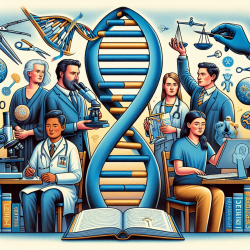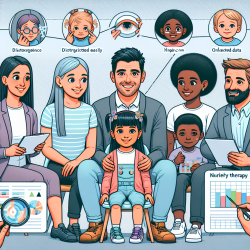As a practitioner providing online therapy services, it is crucial to stay updated with the latest research and technological advancements that can impact your practice. One such groundbreaking area is gene editing, particularly the use of CRISPR technology. The research paper "Falling giants and the rise of gene editing: ethics, private interests and the public good" provides invaluable insights into the ethical, commercial, and public interest dimensions of gene editing. Here, we distill the key points to help you enhance your practice and encourage further research.
The Giants of Gene Editing
The research emphasizes the role of three "giants" in the field of genomics: scientists, public institutions, and cultural norms. Understanding these can help you appreciate the broader context of gene editing and its implications for public good.
- Scientists: The individual researchers and innovators who develop new technologies like CRISPR.
- Public Institutions: Universities, research facilities, and public funding bodies that support scientific research.
- Cultural Norms: The societal values and ethical considerations that shape scientific progress.
Implementing Research Outcomes in Your Practice
Here are some practical ways to integrate the research findings into your practice:
- Stay Informed: Regularly update your knowledge on gene editing technologies and their ethical implications. This will help you provide informed guidance to your clients and stakeholders.
- Promote Public Good: Advocate for research and technologies that prioritize public interest over commercial gains. This aligns with the ethical considerations highlighted in the research.
- Engage in Dialogue: Foster discussions with colleagues and clients about the ethical dimensions of gene editing. This can lead to more informed decision-making and a greater emphasis on public good.
Encouraging Further Research
The research paper also underscores the importance of ongoing investigation into the ethical, social, and economic impacts of gene editing. As a practitioner, you can contribute by:
- Participating in Research: Engage in or support studies that explore the implications of gene editing technologies.
- Collaborating with Experts: Work with bioethicists, geneticists, and other experts to understand the broader impacts of gene editing.
- Advocating for Ethical Standards: Promote the development and adherence to ethical guidelines in genomic research.
By implementing these strategies, you can not only enhance your practice but also contribute to the responsible development and application of gene editing technologies.
To read the original research paper, please follow this link: Falling giants and the rise of gene editing: ethics, private interests and the public good.










